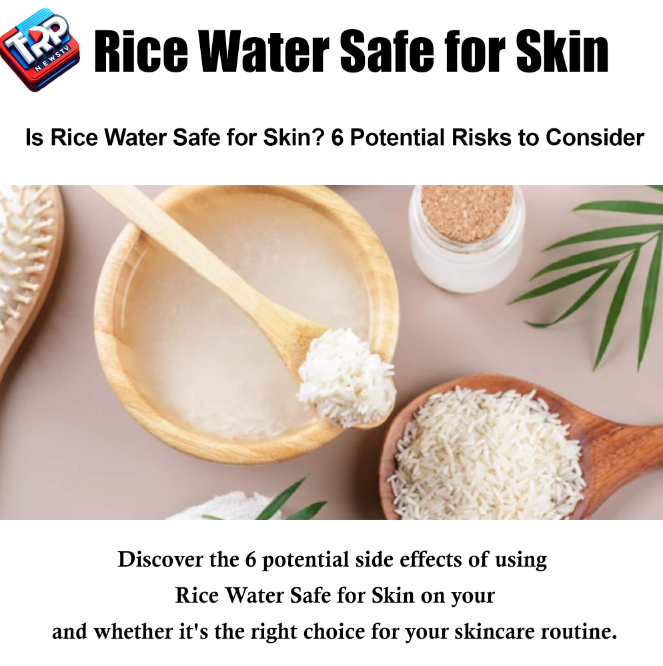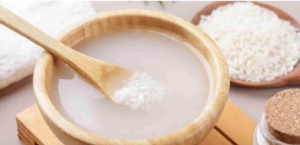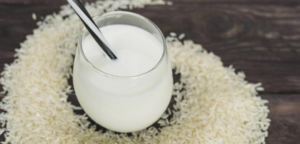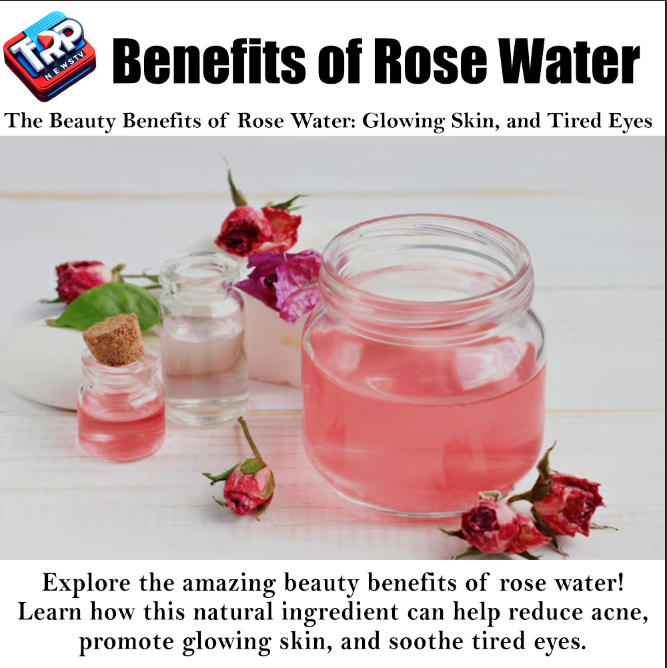
Rice Water Safe for Skin : A Popular Remedy
In recent years, Rice Water Safe for Skin has gained popularity in the skincare world, with many people touting it as a natural remedy for various skin concerns. Derived from soaking or boiling rice, rice water contains a variety of nutrients, including amino acids, antioxidants, vitamins B and E, and minerals, all of which are thought to promote healthier skin. The practice of using rice water in beauty treatments has been around for centuries, particularly in Asian cultures, where it is used to soothe, brighten, and hydrate the skin.
Despite its long-standing use and widespread acclaim, rice water might not be the perfect solution for everyone. While it can provide various skincare benefits, it may also come with some unwanted side effects. If you’re considering incorporating rice water into your skincare routine, it’s essential to be aware of the potential risks. Here are six potential side effects of using rice water on your skin.
1. Rice Water Safe for Skin :Skin Irritation
Rice water is often considered gentle on the skin, but that doesn’t mean it’s completely free from the possibility of causing irritation. People with sensitive skin, in particular, may experience adverse reactions such as redness, itching, or a stinging sensation when applying rice water. This irritation occurs because of the natural compounds in rice water, which can sometimes be too harsh for delicate skin.
If you’ve never used rice water before, it’s crucial to do a patch test to ensure that it won’t cause any irritation. Apply a small amount to an inconspicuous area (like the inside of your wrist) and wait for 24 hours to see how your skin reacts. If you experience any discomfort or redness, it’s best to avoid using rice water on your face.
2. Breakouts
For those with oily or acne-prone skin, rice water may not always be the best choice. The starch in rice water, which is responsible for many of its benefits, can potentially clog pores. This is particularly true if you leave the rice water on your skin for prolonged periods or use it too frequently. Clogged pores can lead to breakouts, blackheads, or whiteheads, which can exacerbate existing acne problems.

While some people find that rice water helps balance oil production and reduce acne, others may experience the opposite effect. If you’re prone to acne or have oily skin, be cautious when using rice water. Consider diluting it with water or using it sparingly to prevent pore blockages.
3.Rice Water Safe for Skin: Over-Drying of Skin
Rice water is known for its astringent properties, meaning it can tighten the skin. While this can help reduce puffiness and make the skin appear firmer, it can also lead to dryness, especially if used excessively. If you already have dry or dehydrated skin, rice water might exacerbate the condition. The astringency could strip away the natural oils your skin needs to stay moisturized, leaving it feeling tight and uncomfortable.
If you choose to use rice water as part of your skincare routine, it’s important to follow up with a good moisturizer to replenish any lost hydration. Additionally, limit its use to avoid over-drying. If you notice your skin becoming flaky or tight, it’s a sign that rice water may not be the best option for you.
4. Allergic Reactions
Although rice water is generally considered safe for most skin types, allergic reactions are always a possibility when introducing a new product or ingredient into your skincare routine. Some people may have an allergic reaction to certain proteins or compounds in rice, which could result in swelling, redness, hives, or even more severe symptoms in rare cases.

To avoid an allergic reaction, always conduct a patch test before applying rice water to your face. Even if you’ve used rice-based products before, the way your skin reacts to homemade rice water might be different. If you experience any signs of an allergic reaction, stop using the rice water immediately and consult a dermatologist if needed.
5. Disrupting the Skin’s Natural Barrier
Your skin has a natural barrier that helps lock in moisture and protect it from external irritants, pollution, and bacteria. Overusing rice water can disrupt this barrier, especially when it’s used too often or in high concentrations. This is because the astringent properties of rice water can strip away the skin’s natural oils, leading to a weakened skin barrier.
When your skin’s barrier is compromised, it becomes more susceptible to irritation, infections, and dehydration. If you notice that your skin feels more sensitive or reactive after using rice water, it could be a sign that the protective barrier is being affected. To avoid this, limit the frequency of rice water applications and always follow up with a hydrating moisturizer to strengthen the skin’s barrier.
6. Bacterial Growth Due to Improper Storage
Rice water is a natural product, which means it can spoil over time. If not stored properly, rice water can become a breeding ground for bacteria and fungi, which can lead to skin infections or other issues. It’s essential to store rice water in an airtight container and keep it in the refrigerator if you’re not using it immediately. Additionally, always make sure to use freshly prepared rice water rather than leftover batches that have been sitting for too long.
If you’re unsure about how long to store rice water, it’s generally recommended to use it within a few days of making it. If you notice any changes in its color, smell, or texture, discard it immediately.
Conclusion
Rice water is undoubtedly a powerful and popular natural remedy with potential benefits for your skin. It can hydrate, brighten, and calm the skin, but it’s important to be aware of the potential side effects, such as irritation, breakouts, dryness, allergic reactions, and the possibility of disrupting the skin’s natural barrier. Always perform a patch test before using rice water extensively, and be mindful of how your skin responds to it.
If you have sensitive skin, a skin condition, or if you’re concerned about any of these risks, it’s always best to consult with a dermatologist before adding rice water to your skincare routine. Like with any home remedy, moderation and attention to your skin’s unique needs are key to safely incorporating it into your regimen.





